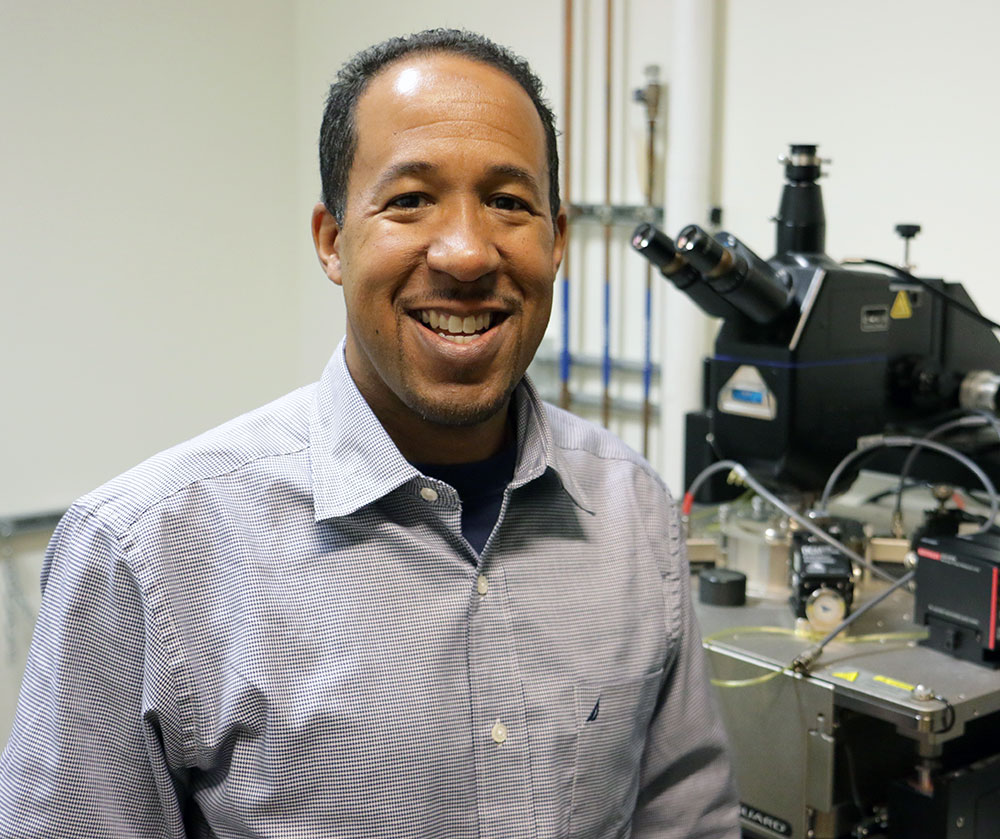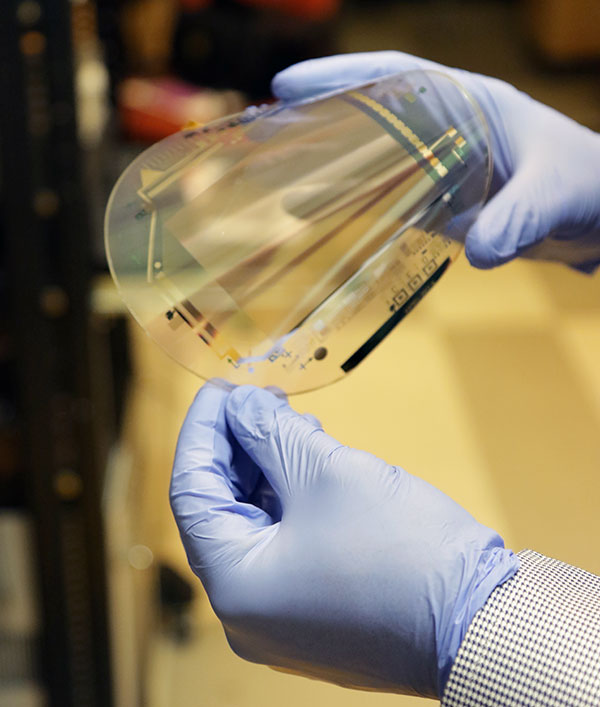
Dr. Chadwin Young
A University of Texas at Dallas engineer is investigating new semiconductor materials for possible use in large area, flexible electronics.
Dr. Chadwin Young, an assistant professor of materials science and engineering in the Erik Jonsson School of Engineering and Computer Science, recently received a five-year, $500,000 Faculty Early Career Development (CAREER) award from the National Science Foundation to pursue this work.
“On one hand, engineers are looking for new materials for transistors that will make electronic devices smaller and faster, and use less power,” Young said. “That’s what semiconductor companies who manufacture computer chips are driven by. But there are also other markets that need transistors to be printed on big sheets of plastic or other flexible substrates at a much reduced cost.”
Young’s research focuses on characterizing the electrical properties of non-silicon, thin-film transistor materials that not only show promise in optimizing the performance of electronics, but also are low cost, environmentally friendly and compatible with potential flexible devices.
“The hope is that these new semiconducting materials will result in new applications for large area, flexible electronics,” Young said. “Ultimately, we want to be able to integrate multiple transistors into circuits with multiple functions onto a single, flexible substrate in a way that can be scaled up to a manufacturing environment.”

Dr. Chadwin Young investigates new semiconductor materials that could be used in transistors and circuits printed on flexible materials.
Potential applications for Young’s work include mass-produced “smart” bandages with embedded sensors that monitor wound healing, or large, lightweight decals for tracking inventory or monitoring structural reliability of buildings and bridges.
One of the challenges of embedding tiny circuits into large-scale flexible materials is a temperature constraint.
“These fabrication processes all have to be done at low temperature, below about 180 degrees Celsius (356 degrees Fahrenheit),” Young said. “I’m focused on characterizing new materials that not only function well in transistors, but also can be manipulated within this target temperature specification.”
The education outreach component of Young’s CAREER grant includes providing research opportunities for UT Dallas undergraduates and bringing middle school educators into his laboratory for hands-on research.
“Middle school is a time when kids are really starting to think about what careers they might want to pursue,” Young said. “There’s a need to excite them about science and technology. Bringing teachers into the lab will give them firsthand experiences with research that they can incorporate into curriculum and take back to their classrooms, and hopefully inspire their students.”